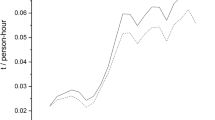Abstract
As a rule, in biotechnology and other technologies, a gap exists between innovations coming from academic research and the commercialisation of the results, which is a serious barrier for innovation processes. This article investigates the role of founding angels as an early stage investment model, which has been applied in North America for a number of years and is now also being established in Europe. Focus is the commercialisation of pre-seed and seed stage technologies developed at universities and research institutions. Founding angels close the gap by actively founding and building up biotechnology start-up companies, together with scientists, typically before the engagement of business angels and venture capital. For providing business expertise and day-to-day operational support they are not compensated monetarily, but with an equity share of the new company. This article analyses the approach and investment strategy of founding angels and contains case studies from Germany and Switzerland showing how this business model is realised.
Similar content being viewed by others
CLOSING THE TECHNOLOGY TRANSFER GAP THROUGH START-UPS
In many cases of innovation processes, a technology transfer gap exists between innovations coming from academic research and the commercialisation of the results to realise industrial applications. This gap can be closed through start-ups, as they are normally much more flexible and faster than established companies. They facilitate the transfer of research results into products catalysing the commercial success of new technologies. Therefore, they are important for innovation and an accelerator of economic growth, especially in high-tech areas like biotechnology, targeting markets with high growth potentials.1, 2
A good example is the area of biofuels, where young technology driven start-up companies with biology and biotechnology as core competence (for example, Butalco, Codexis, Gevo, Mascoma) close the gap in the value chain between the big agro companies (for example, ADM, Bunge, Cargill) and the big oil companies (for example, BP, Shell, Total) (Figure 1). But, in order to build up successful start-ups, two additional gaps in the start-up process must be closed: the financial and operational gap.
CLOSING THE FINANCIAL GAP THROUGH BUSINESS ANGELS
Acquiring enough capital is a serious challenge for many start-ups, especially in early stages, and the financial gap can be closed by business angels.3 They choose to invest in specific sectors because of their previous experience, as they have acquired knowledge of a certain area of technology and have developed a strong network.4 Having been financed by business angels raises the credibility of the company in the eyes of potential partners, and thus increases the chances of the company receiving further investment. They help to bridge the financial gap in the high risk early-stage phase in biotechnology, so that business angels complement venture capital companies, especially with regard to the size of the investment and the investment phases.5 The importance of business angels lies in providing a deal flow for venture capital funds, so that a thriving venture capital market requires a healthy business angel scene, and vice versa.6, 7
Business angels are, in general, looking for more investment opportunities.8 This is mainly due to the fact that most of the proposals they receive do not coincide with their investment criteria. Also, especially in biotechnology, many investors do not possess the necessary technical knowledge required for investing in high-tech areas. Finding a good opportunity takes much effort because of the long selection process.9, 10 Therefore, the resulting equity gap is also a result of the high search cost of business angels seeking investment opportunities.
CLOSING THE OPERATIONAL GAP THROUGH FOUNDING ANGELS
Besides capital, new technology-based companies very often lack business know-how, as the founders are usually highly research-orientated scientists. This means, that besides enough capital, a start-up also heavily relies on operational assistance in order to be successful. Thus, the working relationship between founders and investors is important and it should start as early as possible.11, 12 Unfortunately, business angels do not normally have sufficient time to build a solid relationship with the founding team.13, 14 Another important aspect is that business angels cannot help bridge the gap between academic research and industrial application if insufficient start-ups are founded, because they normally only invest in existing companies.
A business model in which founding teams are supported financially and operationally by so-called founding angels before the founding of the start-up helps to close the financial and operational gap in the start-up creation process (Figure 2). There are two different types of founding angel activities: professional VC like organised investment teams managing the money of investors and individual private persons investing their own money.
This business model is already being applied in North America in different technology areas like nanotechnology.15, 16 In biotechnology, there are a few examples of professional founding angel teams like Symphony Capital that, as a so-called pharma development fund, buys intellectual property and, based on that, found and build up start-up companies together with industrial partners. These partners often acquire the start-up company after successfully developing drugs. For example, Symphony GenIsis was a cooperation with Isis Pharmaceuticals and was sold in September 2007. Symphony Allegro was bought by Alexza Pharmaceuticals in August 2009 and Symphony ViDA by Oxigene in July 2009. Another example is the VC firm Sanderling Ventures that is actively founding and operationally supporting start-up companies together with scientists. Besides these professional founding angels, there are also private persons in North America acting as founding angels in the biotechnology area.
APPROACH AND INVESTMENT STRATEGY OF FOUNDING ANGELS
The approach of founding angels is the combination of management and capital. By funding additional development of technologies at universities, founding angels provide a bridge between early stage development and marketable products. Management support offered includes conducting market research, developing the business plan, overseeing product development, as well as market entry strategies. Founding angels identify unmet needs and investigate potentials in their technology partners’ (universities, R&D laboratories and companies) intellectual property portfolios with the view of obtaining an exclusive license and the subsequent forming, funding and managing of a new company. When technologies are ready to leave the laboratory, start-ups are formed and additional support services are provided and, if necessary, a broader investor syndicate for a follow-on financing is organised. In the scale up phase, a management team is hired and the new company becomes self-sustaining.
An analysis of established business models in the area of start-ups in Europe shows that the founding angels’ business model clearly differs from those of other known players. All known players, for example, technology transfer offices at universities and research institutes, as well as business plan competitions, are only active in small, defined parts of the value chain. Specialised consultants can be found for each step of the process chain from the development of the business idea to an exit, but they have no holistic view and normally take no responsibility for the end result. Business angels and venture capital companies only focus on already founded companies. As a result, none of the mentioned established players are involved for a long enough time to guide the start-up through the entire process (Figure 3). After analysing the work of different founding angels in Europe, it has been found that a process with five different phases provides a framework for founding angels’ investments (Box 1). The analysis is based mostly on private persons, as there are only a few professional founding angel teams in Europe in the area of biotechnology, like Angle Technology in Guildford/United Kingdom or the Lifescience Inkubator in Bonn/Germany. Incubators play an important role as they provide infrastructure and, in some cases, also funding. The border between the incubator and the founding angel business models is not well defined and should be investigated in another research project.
Three examples of private persons as founding angels from Germany and Switzerland are shown in Box 2. The founding angels’ investment strategy is based on three central aspects. Aspect one contains the identification of interesting markets with high potential, where established companies are too slow or ‘conservative’. For example, the area of biocatalysis is mainly driven through academic start-ups like Autodisplay Biotech (see Box 2), as established companies favour proven conventional catalytic processes. Aspect two includes the understanding of the value chains and identification of bottleneck technologies with focused investments to develop these technologies. Butalco (see Box 2) only focuses on genetic optimisation of yeasts and not on the whole biofuel process. Most of the established chemical companies try to develop biofuel processes, but lack biological know-how for optimised fermentation. Aspect three is the building up of a strong intellectual property position and the cooperation with established companies to use their marketing and production resources and subsequent trade sale. Epivios’ business strategy (see Box 2) is the cooperation with established diagnostics companies, as building up an own marketing and production organisation would be not realistic.
The uniqueness of the founding angels’ investment strategy offers clear advantages. As their engagement is at an early stage in the new start-up company, there is little competition with other investors and a large opportunity to ensure attractive investment possibilities with a high value creation potential. Owing to this fact, and the relatively low initial investment volume needed for the pre-seed stage, a large number of investments or engagements can be achieved. This diversification will allow founding angels to expect higher returns as a result of the lower total risk.
Comparing founding angels (private persons), business angels and venture capitalists shows that these investment models fit perfectly together ( Table 1). Founding angels are engaged in very early stage projects (pre-seed and seed stage), business angels in early stage projects (mostly seed and start-up stage) and venture capitalists more in later stage projects (mostly growth stage and only a few specialised companies in the start-up stage). In contrast to business angels and venture capitalists, founding angels do not need a stage, where the technological potential is established and the companies already have some tangible assets, like patents or first customers. The typical investment size correlates to the stages with around €10 000 for founding angels, around €100 000 for business angels and more than €500 000 for venture capitalists. As founding angels and business angels invest their own money, they are more flexible regarding the exit strategy and holding period than venture capitalists. As founding angels fund pre-seed ventures, their average exit horizon is much longer than that of their average venture capital fund manager counterpart. Owing to this long exit horizon, both the entrepreneur and the founding angel have enough time to increase the value of the start-up, which results in higher valuations when additional funding is sought from large venture capital funds. Increased value also translates into a smaller dilution of stock ownership in future rounds, an important consideration for entrepreneurs and founding angels.
CONCLUSIONS
As business angels only invest in existing start-ups, founders who are unable to collect enough capital from ‘friends, family and fools’ for the first steps face a difficult situation. They have to make a tremendous effort to raise funds instead of developing their technology and finding customers. Founding angels, as early stage technology investors, can be defined as an investment model with a huge potential to increase start-up activities, especially at universities and research institutions. They are active in high-tech sectors and invest at an earlier stage of the start-up development than other investors. With their innovative approach, founding angels are very valuable to founders because they (i) invest time to support the founders in daily business, (ii) have a vast amount of knowledge, skills and experience and (iii) provide access to their networks.
By collaborating with the entrepreneurs at an extremely early stage of the company's development, founding angels allow entrepreneurs to focus on their core activities where they excel. This clearly increases the efficiency of the team and the further development of the start-up. A team that harmonises well is an important factor for the success of the start-up, and founding angels are able to create these first class teams based on their operational expertise and engagement. As they work very closely with the founders, founding angels will acquire a deep knowledge of the financial situation or the technological potential of the company. When facing important decisions such as whether a large investment should be made, founding angels will decide differently to business angels or venture capitalists, because they have deeper and more complete information on the company, giving them an advantage.
Owing to their experience and knowledge of a specific industry, founding angels influence the development of start-ups as a driving force behind the founding of new start-up companies. They keep an eye out for new scientific breakthroughs that have the potential of being commercialised. Unrecognised commercial potential can be identified, and otherwise undiscovered technologies or ideas make it to the market. Founding angels have a ‘pull’ function in the venture business and can significantly help to close the technology transfer gap through their support of start-up activities at a very early stage. Thus, founding angels can act as the link between academia and the business world.
References
Heirman, A. and Clarysse, B. (2004) How and why do research-based start-ups differ at founding? A resource-based configurational perspective. Journal of Technology Transfer 29(3–4): 247–268.
Stam, E., Suddle, K., Hessels, J. and Stel, A. (2009) High-growth entrepreneurs, public policies and economic growth. International Studies in Entrepreneurship 2(1): 91–110.
Bygrave, W. and Quill, M. (2007) Global entrepreneurship monitor: 2006 financing report. London, Babson Park, MA: London Business School and Babson College.
Van Osnabrugge, M. (2000) A comparison of business angel and venture capitalist investment procedures: An agency theory-based analysis. Venture Capital 2(2): 91–109.
Maunula, M. (2006) The Perceived Value-Added of Venture Capital Investors – Evidence from Finnish Biotechnology Industry. Helsinki: The Research Institute of the Finnish Economy. In Discussion Paper 1030 of the research project The Development of Biotechnology Industry in Finland.
Madill, J.J., Haines, G.H. and Riding, A.L. (2005) The role of angels in technology SMEs: A link to venture capital. Venture Capital: An International Journal of Entrepreneurial Finance 7(2): 107–129.
Mason, C. (2006) Informal sources of venture finance. In: S. Parker (ed.) The life cycle of entrepreneurial ventures. New York: Springer, pp. 259–299.
Mason, C. and Harrison, R. (2002) Barriers to investment in the informal venture capital sector. Entrepreneurship and Regional Development 14(3): 271–287.
Mason, C. and Harrison, R. (1992) The supply of equity finance in the UK: A strategy for closing the equity gap. Entrepreneurship and Regional Development 4(4): 357–380.
Murray, G. (1999) Early-stage venture capital funds, scale economies and public support. Venture Capital 1(4): 351–384.
Zhang, J. (2009) The advantage of experienced start-up founders in venture capital acquisition: Evidence from serial entrepreneurs. Small Business Economics (Online First), online publication 18 June 2009, doi: 10.1007/s11187-009-9216-4.
Landström, H. (1998) Informal investors as entrepreneurs. Technovation 18(5): 321–333.
Ensley, M.D., Pearson, A.W. and Amason, A.C. (2002) Understanding the dynamics of new venture top management teams: Cohesion, conflict and new venture performance. Journal of Business Venturing 17(4): 365–386.
Paul, S., Whittam, G. and Johnston, J.B. (2004) For richer or poorer – Towards a model of the business angel investing process. In: P. Dowling et al, (eds.) Advances in Interdisciplinary European Entrepreneurship Research. Munster, Germany, pp. 205–222.
Festel, G. and Boutellier, R. (2008) Founding Angels as a Driving Force for the Creation of New High-Tech Start-up Companies. Proceedings of the R&D Management Conference 2008; 20 June 2008, Ottawa: Telfer School of Management, University of Ottawa.
Festel, G., Schicker, A. and Boutellier, R. (2010) Importance and best practice of early stage nanotechnology investments. Nanotechnology Law & Business 7(1): 50–55.
Author information
Authors and Affiliations
Corresponding author
Rights and permissions
About this article
Cite this article
Festel, G. Founding angels as early stage investment model to foster biotechnology start-ups. J Commer Biotechnol 17, 165–171 (2011). https://doi.org/10.1057/jcb.2011.2
Received:
Revised:
Published:
Issue Date:
DOI: https://doi.org/10.1057/jcb.2011.2







